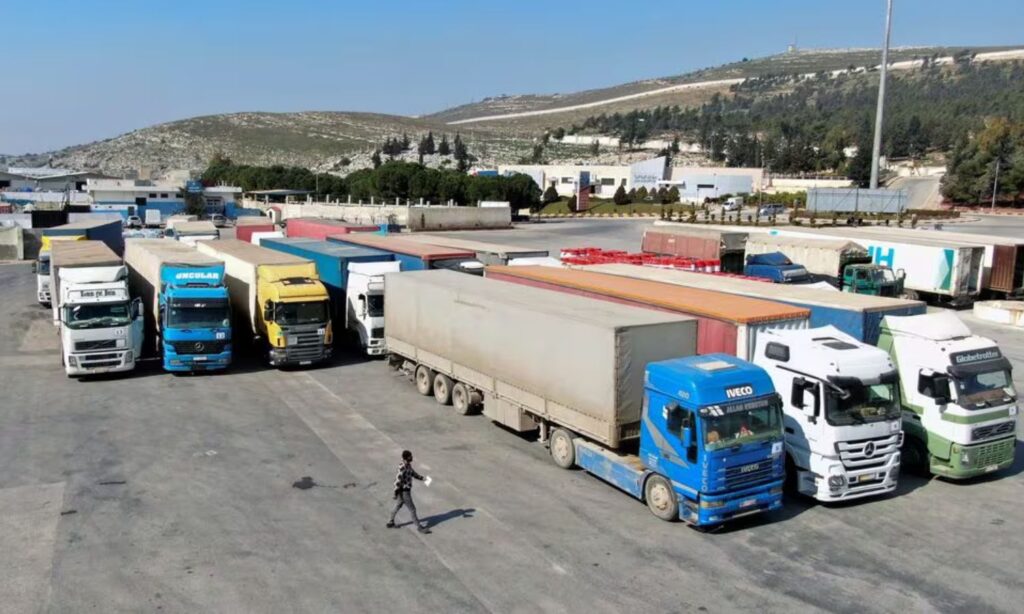The United Nations has agreed with the Syrian regime government to extend the entry of humanitarian aid into Syria via the Bab al-Hawa border crossing for an additional six months.
According to Reuters on Friday, January 12, the Syrian government has agreed to extend the entry of aid to northwestern Syria, under the control of Syrian opposition factions, through the Bab al-Hawa border crossing with Turkey for another six months.
In a diplomatic note seen by Reuters on Thursday, January 11, the Syrian mission to the United Nations stated that the government will extend the permission granted to the UN to use the Bab al-Hawa crossing to deliver humanitarian aid to northwestern Syria for an additional six-month period, ending on July 13.
Reuters reported on Thursday that, according to informed Turkish sources involved in the negotiations on extending aid entry, Turkey is urging the UN and others to expand the scope of aid delivery to northwestern Syria, which is controlled by the Syrian opposition, with global attention and financing priorities shifting towards suffering in other conflicts.
Since 2014, Turkey has become a hub for delivering aid to northwestern Syria, particularly through the Bab al-Hawa crossing, authorized by the UN Security Council.
Reuters reported, citing sources, that the UN is discussing with the Syrian government the possibility of extending this authorization for an “indefinite period” this time, without a specific timeframe of three or six months.
After a week of the earthquake that struck northern Syria and southern Turkey on February 6, 2023, Syrian regime president Bashar al-Assad agreed to temporarily open two additional crossings, Bab al-Salama and al-Rai, from Turkey to northwestern Syria for a three-month period, which ended in May 2023 and was extended until August of the same year.
In November 2023, the United Nations announced that the Syrian government allowed the extension of UN aid delivery to areas controlled by the opposition in northwestern Syria through the Bab al-Salama and al-Rai crossings for another three months, ending in the upcoming February.
Also, the United Nations and the Syrian government reached an agreement on August 6, 2023, to allow aid entry for six months through the Bab al-Hawa crossing, also ending in the upcoming February.
The Bab al-Hawa crossing had stopped the entry of UN aid since July 11, 2023, due to the failure of the Security Council to extend the cross-border mechanism after the Russian veto of the Brazilian-Swiss draft resolution, while the majority of members rejected the Russian resolution, which proposed extending the mechanism for only three months.
In August 2023, the United Nations announced reaching an “understanding” with the Syrian government, allowing the use of the Bab al-Hawa crossing to deliver humanitarian aid to northwestern Syria for six months.
Until December 2023, 4,856 trucks loaded with UN aid had crossed from Turkey to northwestern Syria using three border crossings since the earthquakes, averaging around 400 trucks per month for 2023, the lowest since 2018, according to data from the UN Office for the Coordination of Humanitarian Affairs (OCHA).
In northwestern Syria, two million people out of a total of 2.9 million displaced persons live in camps in a region inhabited by 4.5 million people, where 3.3 million people suffer from food insecurity, according to UN data.











